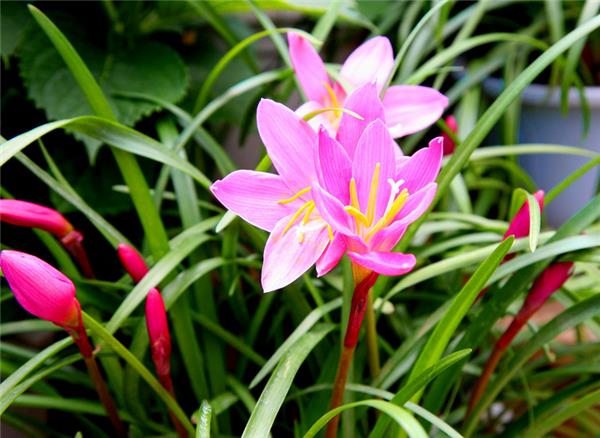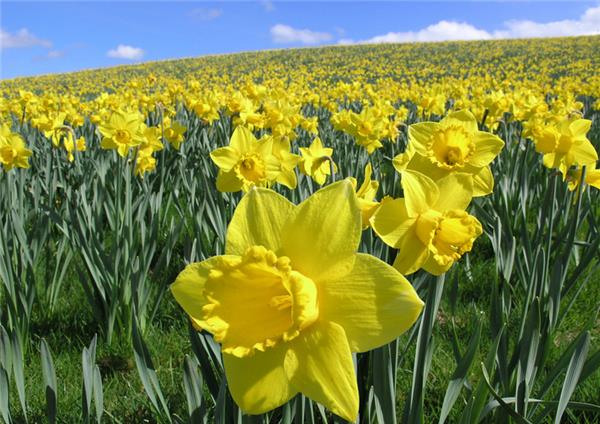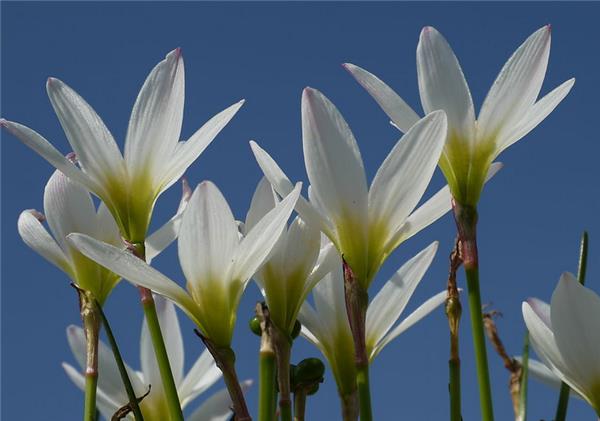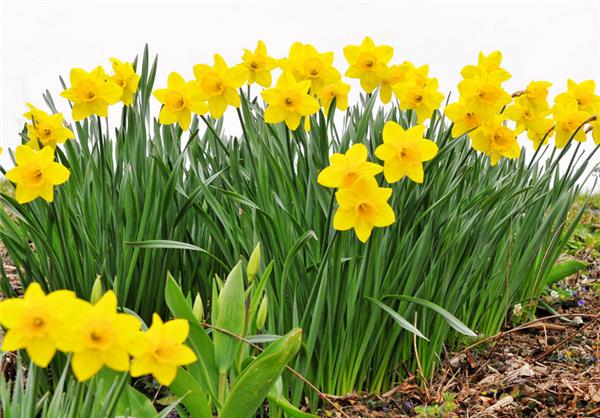What if the leaves of daffodils turn yellow?
What if the leaves of daffodils turn yellow? Friends who want to know might as well take a look at the following introduction!

What if the leaves of daffodils turn yellow?
1. Improper fertilization
A) long-term lack of fertilizer: no application of nitrogen fertilizer or no change of water, lack of nutrients such as nitrogen in the water, resulting in thin and yellow branches and leaves. It is necessary to change into new culture water in time and gradually apply rarefied mature liquid fertilizer or compound flower fertilizer.
B) excessive fertilization: if there is too much fertilization, the new leaves will be thickened, and the dry tips of the old leaves will be rugged, and the dry tips of the old leaves will fall off. You should immediately stop fertilization, increase the amount of water exchange, make the fertilizer lose, or immediately pour the pot, rinse the bulb root with water and then replant it into the basin.
C) Pesticide stimulation: excessive concentration of pesticides in the prevention and control of diseases and insect pests, or pollution by toxic gases in the atmosphere, or sudden watering of cold water when the temperature is high, all of which can easily cause local yellowing and scorching of the leaf tip or leaf surface, or even death of the whole plant. Therefore, we should pay attention to the rational use of pesticides and try to eliminate air pollution sources. Avoid watering flowers with cold water around noon in midsummer.
2. The temperature is not good
A) Hot and high temperature: if the daffodils are placed in a high temperature and let the strong light shine directly, it is very easy to cause scorch on the tip and edge of young leaves, or leaf yellow shedding. Move to a well-ventilated shady place in time.
B) the temperature is too low: when the winter temperature is too low, the daffodils suffer from cold damage, which leads to the yellowing of the leaves and death in severe cases. If the room temperature is too high, the transpiration of the plant is too high, and the root water and nutrients are in short supply, the leaves will turn yellow. Please pay attention to adjust the room temperature in time.
3. Soil and water are not suitable.
A) lack of iron in water: due to the lack of soluble iron and other elements that can be absorbed by the water, the leaves will gradually turn yellow. Acid soil and water should be selected when planting, and alum and fertilizer water should be often irrigated during the growth period.
B) Air drying: when the indoor air is too dry, daffodils often appear phenomena such as leaf tip dryness or leaf edge scorching. Attention should be paid to water spraying, covering plastic film cover and other methods to increase air humidity.

4. Lack of light
If the daffodils are placed in shaded places or places with insufficient light for a long time, excessive shading will lead to yellowing of branches and leaves. As long as you have 6 hours of light every day, you can grow normally. If the light is not enough, the leaves are easy to grow, and the blossoms are few or not; if the light is too strong, it is also disadvantageous to growth.
5. Long-term unpruned
If the branches and leaves of Narcissus grow luxuriantly, coupled with the long-term unpruned, not ventilated, resulting in insufficient light of the inner branches and leaves, it is easy to cause the leaves to yellowing and falling off. Reasonable fertilization should be applied and pruning should be strengthened to make it ventilated and transparent.
6. Diseases and insect pests
The leaf spot disease of daffodils caused by fungi and other bacteria is easy to cause local necrosis of the leaves, yellow spots or patches appear, the whole leaves wither and fall off seriously, and the leaves are mottled with yellow and green after being infected by mosaic virus; suffering from shell insects, red spiders and other damage, the leaves will also become local yellow, and even the whole leaves will wither and fall off. All should be sprayed in time.

Culture methods of daffodils
One: hydroponic method
The water planting method is the most convenient and common method in the cultivation of daffodils. Before planting, you only need to remove the old roots and stems of the daffodils, and then put them in a bottle filled with water. It is worth noting that the water cultivation method is used to cultivate daffodils. You should change water for it every day, and put it in a cool place, and put it in a sunny place when it blossoms.
Second: Paddy field cultivation
Paddy field cultivation is one of the cultivation methods of daffodils. The key point of paddy field cultivation is to choose soft soil, then pour water into the soil to ripen the soil below, and add a little fertilizer to improve the nutritional content of the land. Reduce the harm of diseases and insects, and then plant daffodils in the paddy field.

Third: sand planting method
Sand planting method is also one of the cultivation methods of water flower, the key point of using sand planting method lies in the choice of sand, the cultivation of daffodils should choose the basin with fine sand and good air permeability, and the daffodils should be watered in time after putting the daffodils in the sand basin, which should not be exposed to the hot sun so as not to cause water shortage.
Four: soil planting method
In the cultivation method of daffodils, many people also like to use soil cultivation method, and the key point of using soil cultivation method lies in the choice of soil. We should choose soft humus soil free of diseases and insect pests, just like water planting method. Before planting, we should first remove the old stem of its root and then plant it, and then water it properly and put it in a cool place.
Before planting, we should first remove the old stem from its root and then plant it, and then water it appropriately and put it in a cool place.
Related
- Wuhan Hospital Iron Tree Blooming Result Was Instantly Frightened by the Gardener Master
- Which variety of camellia is the most fragrant and best? Which one do you like best?
- What is the small blue coat, the breeding methods and matters needing attention of the succulent plant
- Dormancy time and maintenance management of succulent plants during dormancy
- Minas succulent how to raise, Minas succulent plant pictures
- What are the varieties of winter succulent plants
- How to raise succulent plants in twelve rolls? let's take a look at some experience of breeding twelve rolls.
- Attention should be paid to water control for succulent plants during dormant period (winter and summer)
- Watering experience of twelve rolls of succulent plants
- Techniques for fertilizing succulent plants. An article will let you know how to fertilize succulent plants.



